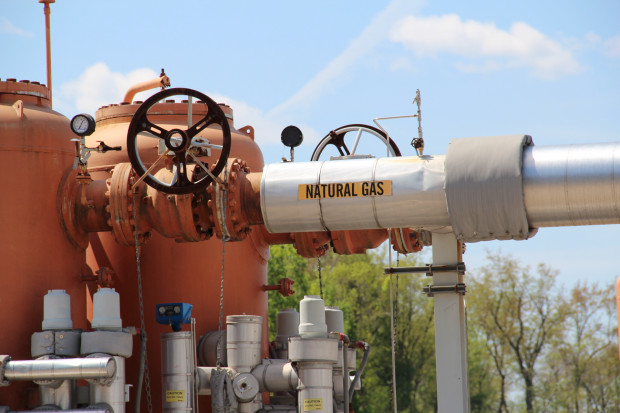Natural gas plant proposed for coal-rich Greene County
-
Reid Frazier/The Allegheny Front
A New York company is planning to build a natural gas plant in Pennsylvania’s biggest coal county. Hilltop Energy Center LLC, a Huntington Bay, N.Y.-based company, is proposing to build a 600-megawatt natural gas power plant in Cumberland Township, Greene County.
Construction on the plant could start in November 2018, says William Campbell, III, an environmental consultant for the project. The Pennsylvania Department of Environmental Protection (DEP) held a public hearing Thursday in Carmichaels, Pa. for the facility’s proposed air quality permit.
The project is among dozens vying to take advantage of Pennsylvania’s booming gas industry. Energy firms have proposed over 40 gas-fired projects in Pennsylvania since 2011, according to federal data. Fourteen are under construction or operating.
In southwestern Pennsylvania, five gas plants have been proposed, and one —Tenaska Westmoreland Generating Station — is under construction, said Alan Binder of the DEP’s Southwest Bureau.
Campbell says the state’s surge in natural gas production is the main reason why the company is building the plant in Greene County, the largest coal-producing county in the state.
“There is a surplus of gas, which means gas prices are very low, and predictions are they’re going to stay very low, which makes it very economical and makes this a great region for this kind of plant,” Campbell says. “Greene County has the site, it has a receptive population here that is good for this (type of project). It’s the right location.”
Binder said that since Pennsylvania does not meet federal standards for ozone, a pollutant that can exacerbate asthma and cause lung disease, the plant will be required to install equipment to reduce emissions of nitrogen oxides and volatile organic compounds–two classes of chemicals that create ozone.
In addition, the plant will be required to purchase Emissions Reduction Credits, or ERCs, to displace the pollution it will create by buying credits for pollution reductions from plants that are cleaning up or shutting down.
The plant will employ 20 to 30 full-time employees once completed.
The DEP will take public comment on the plant’s proposed air quality permit until Nov. 12.

















